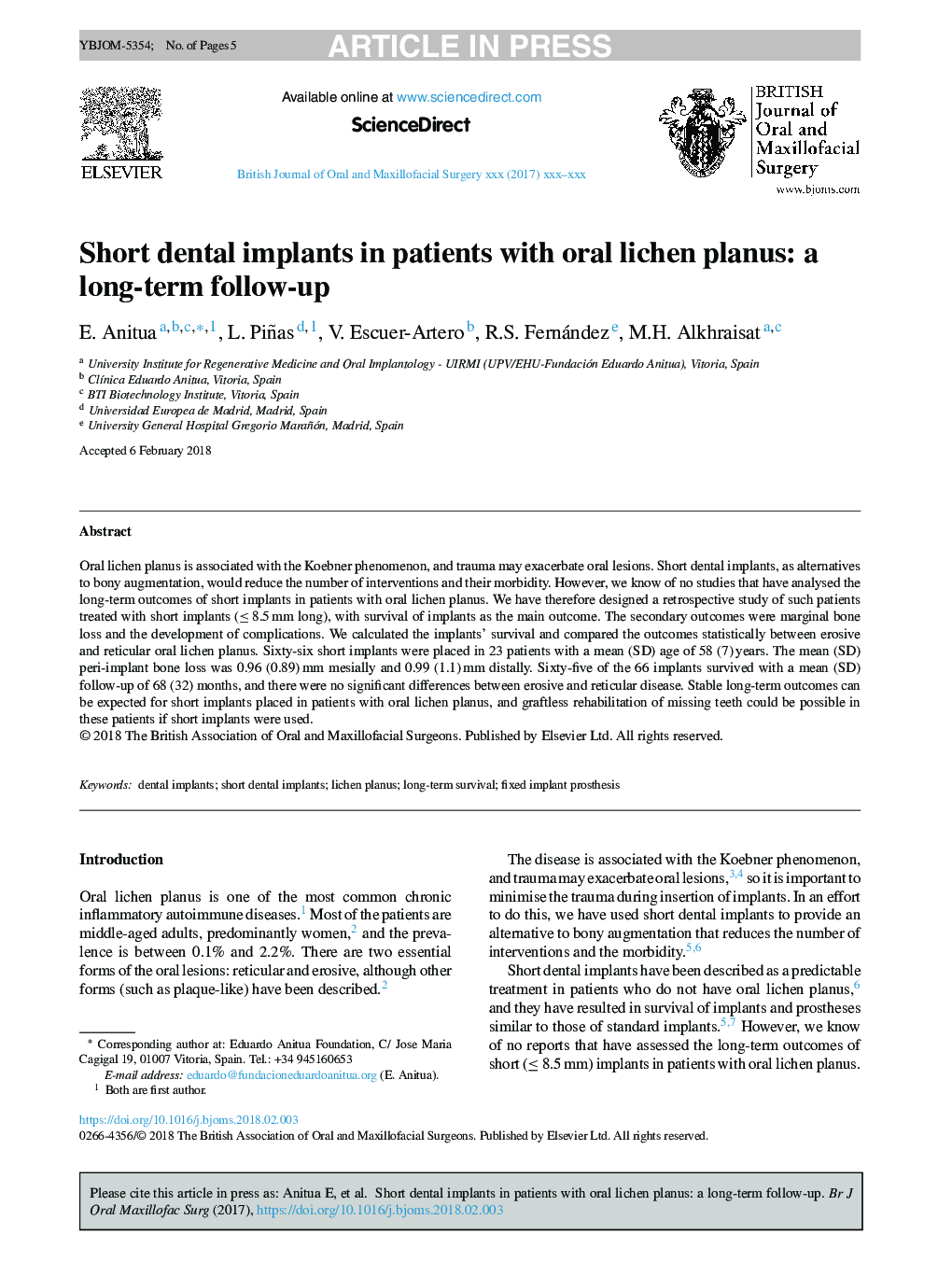| Article ID | Journal | Published Year | Pages | File Type |
|---|---|---|---|---|
| 8696777 | British Journal of Oral and Maxillofacial Surgery | 2018 | 5 Pages |
Abstract
Oral lichen planus is associated with the Koebner phenomenon, and trauma may exacerbate oral lesions. Short dental implants, as alternatives to bony augmentation, would reduce the number of interventions and their morbidity. However, we know of no studies that have analysed the long-term outcomes of short implants in patients with oral lichen planus. We have therefore designed a retrospective study of such patients treated with short implants (â¤Â 8.5 mm long), with survival of implants as the main outcome. The secondary outcomes were marginal bone loss and the development of complications. We calculated the implants' survival and compared the outcomes statistically between erosive and reticular oral lichen planus. Sixty-six short implants were placed in 23 patients with a mean (SD) age of 58 (7)âyears. The mean (SD) peri-implant bone loss was 0.96 (0.89)âmm mesially and 0.99 (1.1)âmm distally. Sixty-five of the 66 implants survived with a mean (SD) follow-up of 68 (32) months, and there were no significant differences between erosive and reticular disease. Stable long-term outcomes can be expected for short implants placed in patients with oral lichen planus, and graftless rehabilitation of missing teeth could be possible in these patients if short implants were used.
Related Topics
Health Sciences
Medicine and Dentistry
Dentistry, Oral Surgery and Medicine
Authors
E. Anitua, L. Piñas, V. Escuer-Artero, R.S. Fernández, M.H. Alkhraisat,
